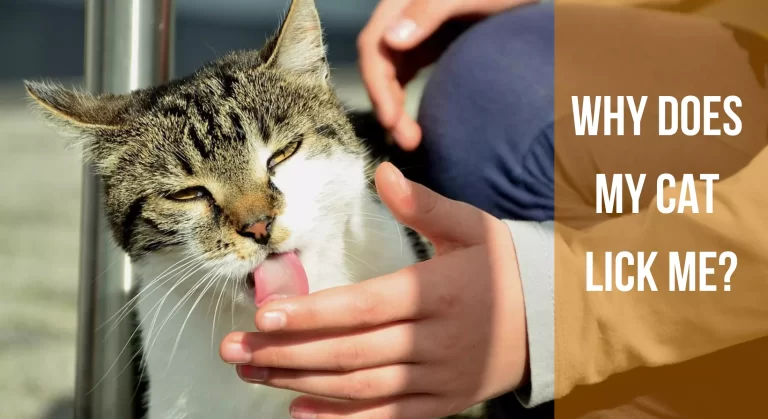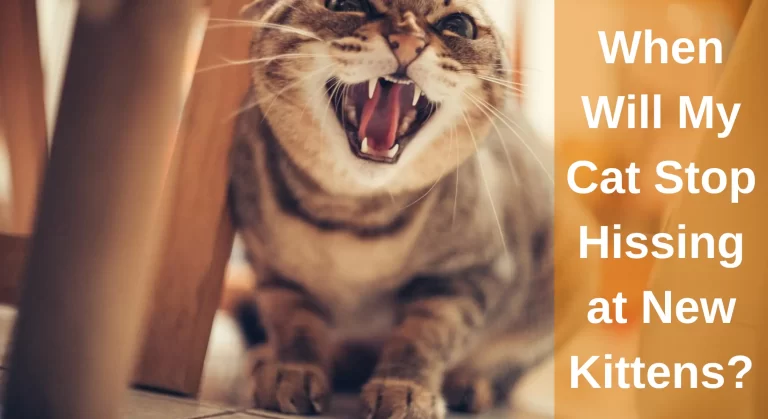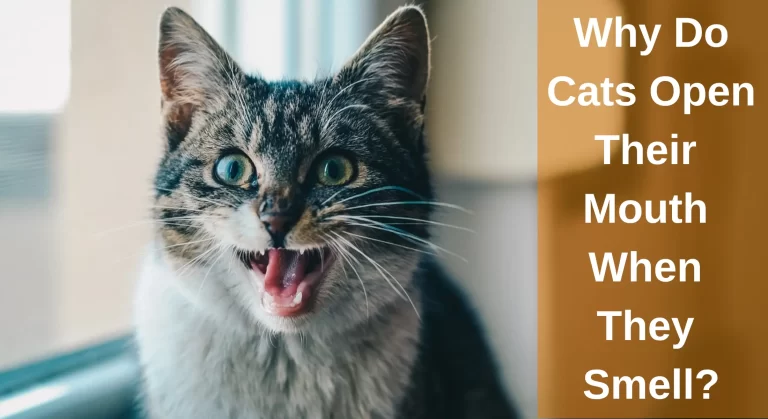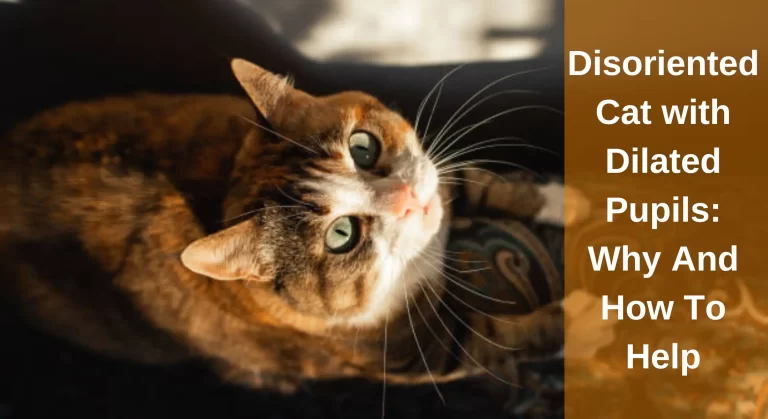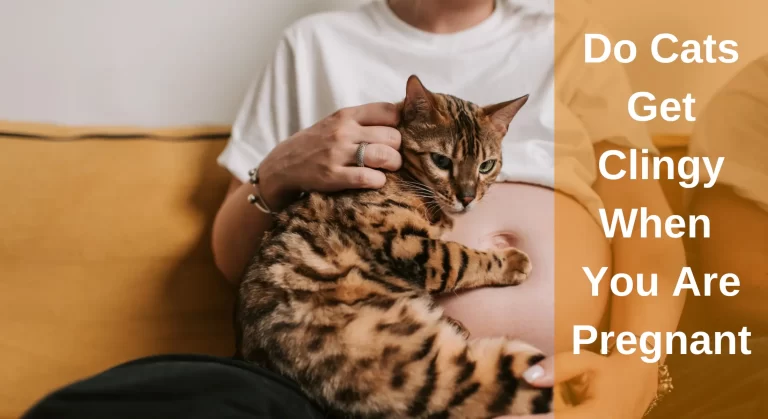Do Cats Protect Their Owners? Signs of Protective And Overprotective Cats
Cats have been a part of human society for thousands of years. Their playfulness, intelligence, and companionship are well known. However, many people ask one question: Do cats protect their owners?
Cats may be incredibly loyal and protective of their humans. Cats may not be as overtly protective as dogs, but they can still be protective towards their humans. Cats protect their territory and the humans who love, care for, feed, and shelter them. They do this by following their owners and eliminating anything that might endanger their loved ones.
In this article, we will examine the topic of cats and human protection, including the history of cats and humans, cat instincts and behaviors, examples of cats protecting humans, signs of protective and overprotective cats how to handle an overprotective cat.
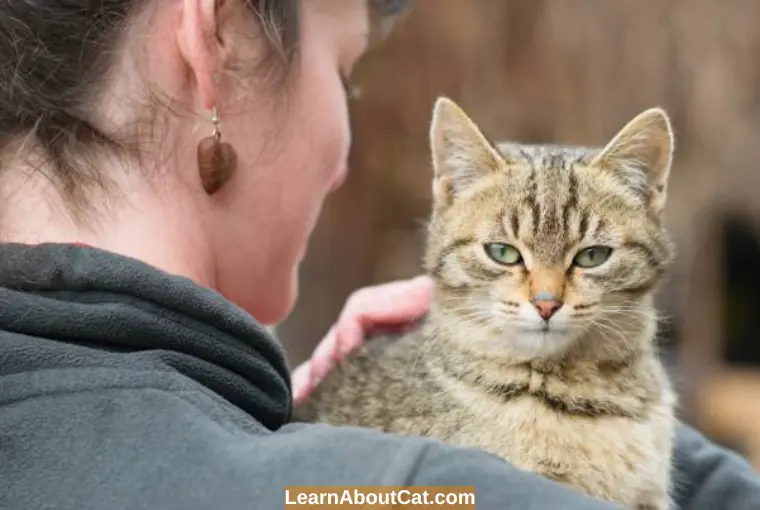
The History of Cats and Humans
Thousands of years ago, cats were domesticated. It is believed that they were first domesticated in ancient Egypt around 4,000 years ago. They were highly revered in Egyptian society and were even worshiped as gods. Many cultures have adopted cats since then, which have become a permanent part of their lives.
Throughout history, cats have been known for their hunting skills. They were often kept as pets on ships to control the rat population, and they were also kept in homes to control pests. However, their ability to protect humans was not always recognized.
The Nature of Cats
To understand if cats are protective of their humans, it’s important first to understand the nature of cats. Cats are natural predators, so they have a strong instinct to protect their territory. They are also highly territorial animals and fiercely defend their territory against any perceived threat.
Do Cats Protect Their Humans?
While cats may not display the same level of protectiveness towards their owners as dogs do, they are still capable of being protective. This protectiveness may relate to their bond with their owner or territorial instincts. Cats have been known to protect their humans in a variety of ways, including:
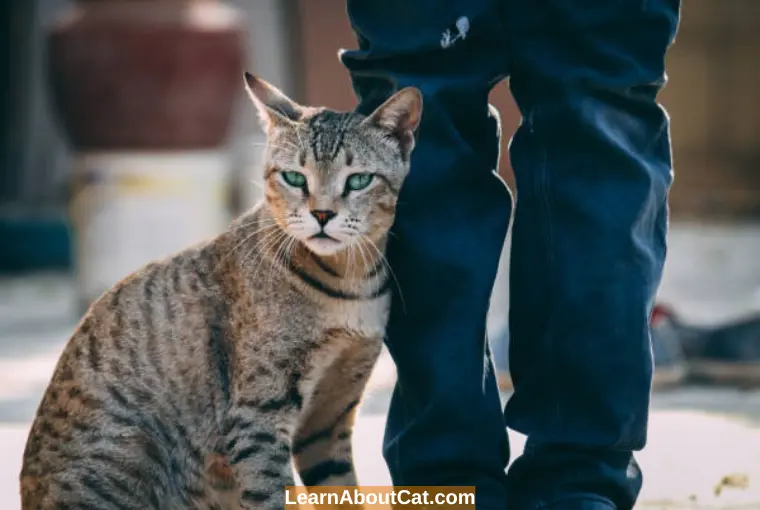
- Warning of Potential Danger: Cats have an acute sense of hearing and smell and can often detect potential dangers before humans do. They may hiss, growl, or even physically block their owners from danger to protect them.
- Intervening in Conflicts: Cats can also intervene in conflicts between their owners and other animals or humans. They may attack or chase away an aggressor to protect their human.
- Comforting Their Humans: While not necessarily a form of protection, cats are known for comforting their humans during times of stress or anxiety. They may cuddle with their owner, purr, or provide other forms of emotional support.
Check Out: Do Cats Get Mad At You?
Examples of Cats Protecting Humans
While there are no guarantees that a cat will protect their owner, there are many examples of cats protecting humans. Here are a few examples:
- In 2014, a cat in California saved a boy from a dog attack by chasing the dog away.
- In 2010, a cat in Russia saved a baby from freezing to death by keeping the baby warm for several hours.
- In 2007, a cat in New Jersey woke up her owner when the house was on fire, potentially saving her life.
These examples show that cats can protect humans in unexpected and potentially dangerous situations. However, it is important to note that these instances are not always the norm, and not all cats may act protectively.
How Do You Know if Your Cat is Protecting You: Signs of A Protective Cat
Cats are known for their independent nature and may not exhibit the same overt protective behaviors as dogs. However, there are some signs that your cat may be trying to protect you.
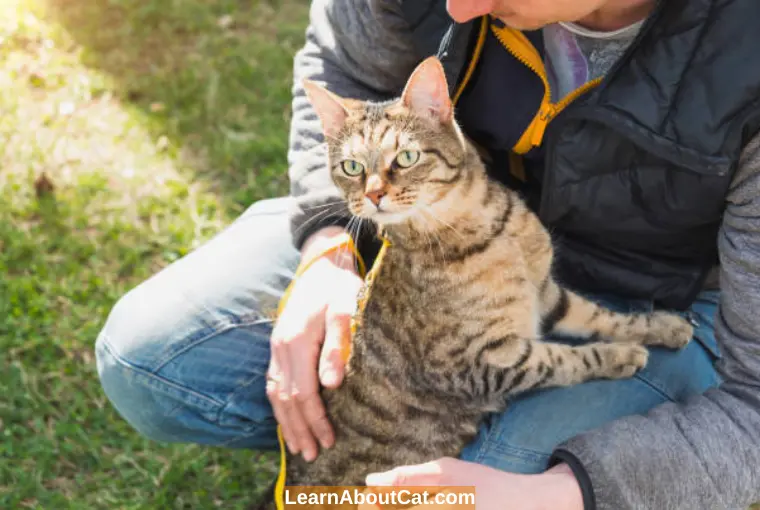
1. She Becomes Hyperactive
One sign that your cat is trying to protect you is if he or she gets “the zoomies.” When your cat rushes around the house at breakneck speed, this is what it means.
Your cat may be having a good time, but the zoomies are often a sign that your cat is in danger, such as an impending storm or a frightening noise that your ears can’t hear.
If you live in an area where earthquakes, thunderstorms, tornadoes, or hurricanes are regular, your cat’s zoomies can coincide with oncoming bad weather as they have far more acute and accurate senses than humans.
2. They Improve Your Mood
Many cats love snuggling close to their owners because they are warm, which might indicate that your cat is protecting you. Anyone who has ever owned a cuddly cat can attest to the fact that cats can sense when you’re sad or sick.
When cats realize you’re in need of comfort, they’ll lay on you, cuddle up next to you, and purr away. When you’re unwell, even cats that don’t ordinarily cuddle will snuggle
up to you.
3. They Always Keep an Eye on You
To begin with, you may have observed that your cat follows you throughout the home, particularly when you go to the toilet or bed. This indicates that you and your cat have a strong bond. They are after you not just to gain your trust but also to protect you. This is why they want to track you down when you do things that might endanger you.
4. They Get Rid of Pests
Your cat also safeguards you by removing any pests that may be present in your territory. If you and your cat have formed a deep attachment, they will concentrate their hunting efforts on your common territory as a defensive strategy.
5. Fights Amongst Cats
Finally, a cat may be able to protect you fully from harm. Cats protect humans from other animals, cats, and even humans. Even though a cat’s natural instinct is to escape from danger, the safety and security you provide as the cat’s colony may urge your cat to stay and fight to protect you.
Signs of an Overprotective Cats
While guarding is a desirable habit among cat owners, it may sometimes become excessive. Some cats are extremely protective of their owners. Overprotective cats can show various behaviors that can become problematic if they are not addressed.
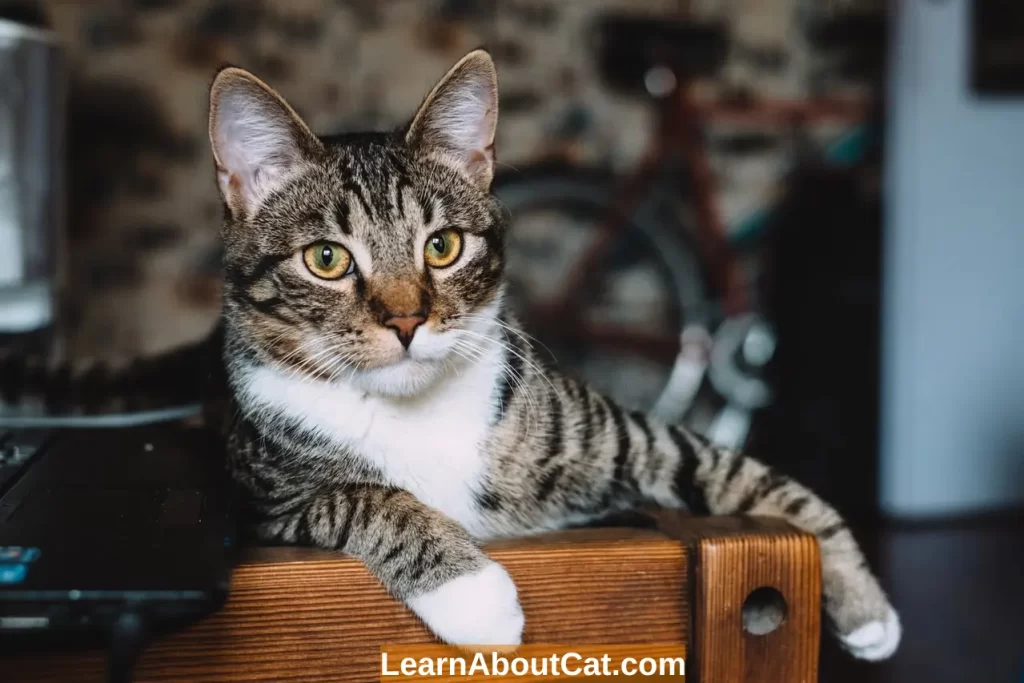
- Aggression towards visitors: An overprotective cat may become aggressive towards anyone who comes near its owner, even if they pose no threat. This can include hissing, growling, and swatting.
- Excessive grooming: Some cats may become overly focused on grooming their owner, which can indicate anxiety or overprotection. This behavior may become excessive and lead to hair loss or skin irritation.
- Refusal to let their owner leave: An overprotective cat may become overly attached to their owner and refuse to let them leave the house or room. This can signify separation anxiety and lead to destructive behavior when the owner is absent.
- Overly clingy behavior: Some cats may become overly clingy and demand constant attention from their owner. This can be a sign of overprotection and may become problematic if the cat becomes aggressive or anxious when their owner is absent.
- Unwillingness to share their owner: An overprotective cat may become possessive of their owner and refuse to let anyone near them. This can be problematic when the owner has guests or when the cat becomes aggressive towards other pets in the household.
Some other signs include:
- Pointed ears.
- Slouched position.
- Back arched, huffing.
- Screeching, hissing, or growling are all examples of vocalizations.
- Eyes that are dilated and big.
- Tail movements that are quick and sharp.
Interesting Reading: Can Cats Kill Each Other?
How Do You Handle an Overly Protective Cat?
Dealing with an overprotective cat can be challenging, but patience and understanding can help your feline friend overcome their protective behaviors. Here are some tips for handling an overprotective cat:
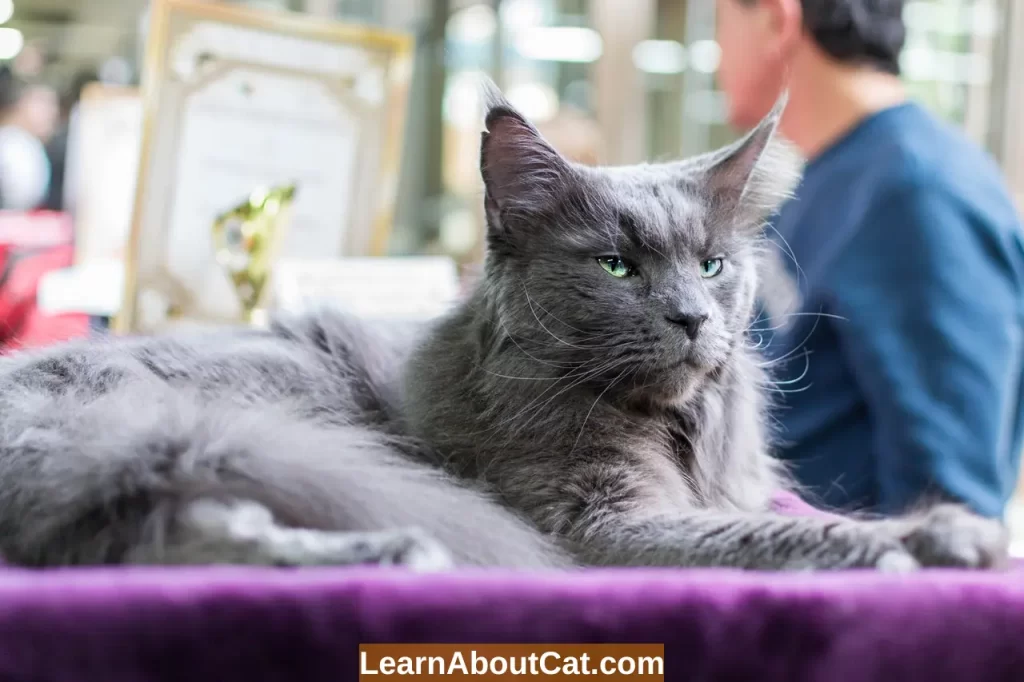
- Establish boundaries: It is important to set clear boundaries with your cat and establish what is and is not acceptable behavior. This can include teaching your cat not to scratch or bite visitors or not to become overly aggressive towards other pets in the household.
- Provide socialization opportunities: Cats should be socialized with other pets and people as early as possible to make them more comfortable. This can include inviting friends and family over to interact with your cat or providing opportunities to interact with other animals in a controlled environment.
- Provide plenty of mental and physical stimulation: Cats need plenty of mental and physical stimulation to stay happy and healthy. Providing interactive toys, scratching posts, and playtime can help your cat expend excess energy and reduce anxiety.
- Seek professional help: See a veterinarian or animal behaviorist may be necessary if your cat’s overprotective behavior becomes severe or aggressive. They can help you develop a plan to address the behavior and provide appropriate training and behavioral modification techniques.
Also, Check Out: Why Are Cats Not As Friendly As Dogs?
Why Is My Cat So Protective of Me?
A cat’s protectiveness towards you could be attributed to several factors. The bond between cats and you are strong, and they may feel loyal or protective towards you. They do this by following their owners and eliminating anything that might endanger their loved ones.
Additionally, cats may perceive you as vulnerable or in need of protection, especially if you are sick or injured. Cats can also display protective behavior as part of their natural territorial instincts.
Check Out: Can Cats Be Obsessed With Their Owners?
Do Cats Protect Their Owners from Being Attacked by other Cats?
It is possible that your cat may try to protect you from another cat if they perceive the other cat as a threat. Cats adore their families, and their families cherish them in return.
Depending on the personality and characteristics of the cat, this may vary. Some cats may be more likely to engage in aggressive behavior towards other cats, while others may avoid confrontation altogether.
Do Cats Protect their Owners from Spirits?
No scientific evidence suggests that cats can protect their owners from spirits or other supernatural entities. However, many cultures throughout history have believed that cats possess spiritual or protective qualities, and some people may feel comforted by their cat’s presence during times of fear or uncertainty.
Ultimately, whether or not a cat can protect their owner from spirits is a matter of personal belief and interpretation.
Is It True That Cats Keep An Eye on Their Owners as They Sleep?
How often have you gotten out of bed to discover your cat staring at you? Not only are they checking to see whether you’re still with them, but they’ve probably been keeping an eye on you all night. Some cats may even wait until you fall asleep at the bedroom door before retiring for the night.
They feel safe while sleeping near their owner’s bed. It creates a more secure environment for children and encourages them to be more vigilant in emergencies.
Frequently Asked Questions
Do all cats exhibit protective behaviors?
No, not all cats will exhibit protective behaviors, and some may retreat or hide when they feel threatened.
Can male cats be protective of their female owners?
Yes, male cats can be protective of their female owners. It could be because they have a close bond with their owners or they want to protect them. However, this behavior can also be territorial and may be directed towards other cats or animals the male cat sees as threatening.
Can cats care about their owners?
Yes, cats are capable of caring about their owners, despite their reputation for independence. It may take cats longer to form strong bonds with their owners than other animals, but they can express affection in different ways than dogs.
Cats may show affection by following their owners around the house, cuddling, purring, or rubbing against them. Some cats may even bring their owners gifts, such as toys or dead prey.
Are cats loyal to their owners?
As for loyalty, cats may not exhibit the same unconditional loyalty as dogs, but they can form strong attachments to their owners. They may become distressed or anxious when their owners are away for extended periods of time, and some cats may even try to follow their owners out of the house.
Do indoor cats display the same level of protective behavior as outdoor cats?
While indoor cats may not have the same territorial instincts as outdoor cats, they can still protect their owners.
Can cats provide their owners with a sense of comfort and security while they sleep?
Yes, many cat owners find comfort in having their feline companions nearby while they sleep.
Why do cats protect babies?
Cats may feel a protective instinct towards babies, especially if they have been raised around them. They may also see babies as vulnerable and in need of protection.
Wrap Up!
Although a cat’s natural impulse is to flee from danger, it may also defend its owner. Cats have been reported to defend their human owners from criminals and rowdy canines.
They are also claimed to protect us spiritually from negative energy and demonic spirits, but this has yet to be proven. They have a closer link with their female owners and are thus more affectionate.
Related Posts:
Who is Isabella?
My name is Isabella, and I am a dedicated and knowledgeable cat enthusiast. With years of experience caring for cats and a deep love for felines, I made a mission to help other cat lovers navigate the challenges of cat ownership.

